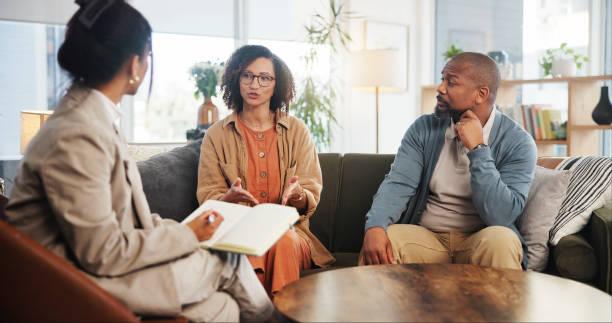Understanding Individual Counselling: A Path to Personal Growth

In today’s fast-paced world, emotional struggles, stress, and personal challenges are more common than ever. Individual counselling offers a safe and supportive environment where you can explore your thoughts, feelings, and behaviors with a trained professional. It’s a personal journey designed to help you understand yourself better, overcome difficulties, and create meaningful changes in your life.
What Is Individual Counselling?
Individual counselling is a one-on-one process between a client and a qualified counsellor. The main goal is to provide guidance, emotional support, and effective coping strategies to deal with life’s challenges. Unlike general advice from friends or family, counselling is confidential, structured, and focused entirely on your well-being.
In these sessions, the counsellor listens without judgment, helping you gain new perspectives on your experiences. Over time, this process encourages self-awareness, emotional regulation, and personal growth.
Why People Seek Individual Counselling
People choose individual counselling for many reasons. Some of the most common include:
-
Stress and Anxiety: Managing daily stress or dealing with anxiety disorders.
-
Depression: Understanding and addressing feelings of sadness or hopelessness.
-
Career or Academic Challenges: Finding clarity in decision-making and direction.
-
Grief and Loss: Coping with emotional pain after the loss of a loved one.
-
Low Self-Esteem: Building confidence and self-acceptance.
-
Life Transitions: Adjusting to significant changes such as moving, divorce, or retirement.
Whatever the issue, counselling helps individuals develop tools to handle difficulties with greater resilience and confidence.
How Individual Counselling Works
The process usually begins with an initial session where you discuss your goals, history, and current concerns. Based on your needs, the counsellor may use different therapeutic approaches such as:
-
Cognitive Behavioural Therapy (CBT): Focuses on identifying and changing negative thought patterns.
-
Solution-Focused Therapy: Concentrates on present solutions rather than past problems.
-
Person-Centred Therapy: Encourages self-exploration and personal empowerment.
Each session typically lasts 45–60 minutes, with frequency depending on your needs and progress.
The Benefits of Individual Counselling
Engaging in individual counselling provides numerous emotional, psychological, and even physical benefits.
Emotional Benefits
-
Greater self-understanding
-
Improved emotional regulation
-
Reduced anxiety and depression
Mental Benefits
-
Better decision-making skills
-
Enhanced problem-solving abilities
-
Increased self-confidence
Overall Well-Being
-
Stronger relationships
-
Improved communication
-
Healthier lifestyle choices
Through counselling, you can discover the patterns holding you back and learn how to replace them with positive habits.
Understanding the Difference Between Personal and Relationship-Based Therapy
While individual counselling focuses on personal growth, some people also seek guidance to improve their relationships.
For instance, a couples counseling session involves two partners working together with a therapist to resolve conflicts, improve communication, and strengthen their emotional connection. This process focuses on mutual understanding and rebuilding trust. Unlike individual sessions, the attention is on how both partners interact and support each other within the relationship.
On the other hand, relationship therapy can apply to romantic partners, family members, or close friends. It helps individuals and groups understand emotional dynamics, manage conflicts, and create healthier connections. Through this approach, people learn to communicate better and develop empathy for one another.
Both couples counseling session and relationship therapy share one goal — fostering harmony and emotional well-being — but individual counselling focuses primarily on your personal healing and self-awareness journey.
When to Consider Individual Counselling
You might benefit from individual counselling if you:
-
Feel overwhelmed by stress or emotional pain
-
Experience recurring negative thoughts
-
Struggle to make important decisions
-
Find it difficult to express emotions
-
Want to improve your relationships and communication
It’s important to remember that seeking help is a sign of strength, not weakness. Everyone deserves support, and counselling provides that space to reflect, heal, and grow.
Final Thoughts
Individual counselling is a powerful step toward emotional healing and self-discovery. Whether you’re dealing with personal struggles or trying to improve your overall well-being, counselling offers the guidance and tools you need to move forward with confidence.
While a couples counseling session and relationship therapy focus on interpersonal dynamics, individual counselling empowers you to understand yourself deeply, manage life’s challenges effectively, and build a more fulfilling life. Taking that first step toward therapy can open the door to lasting positive change — and a stronger, more resilient you.
- Art
- Causes
- Crafts
- Dance
- Drinks
- Film
- Fitness
- Food
- Игры
- Gardening
- Health
- Главная
- Literature
- Music
- Networking
- Другое
- Party
- Religion
- Shopping
- Sports
- Theater
- Wellness



